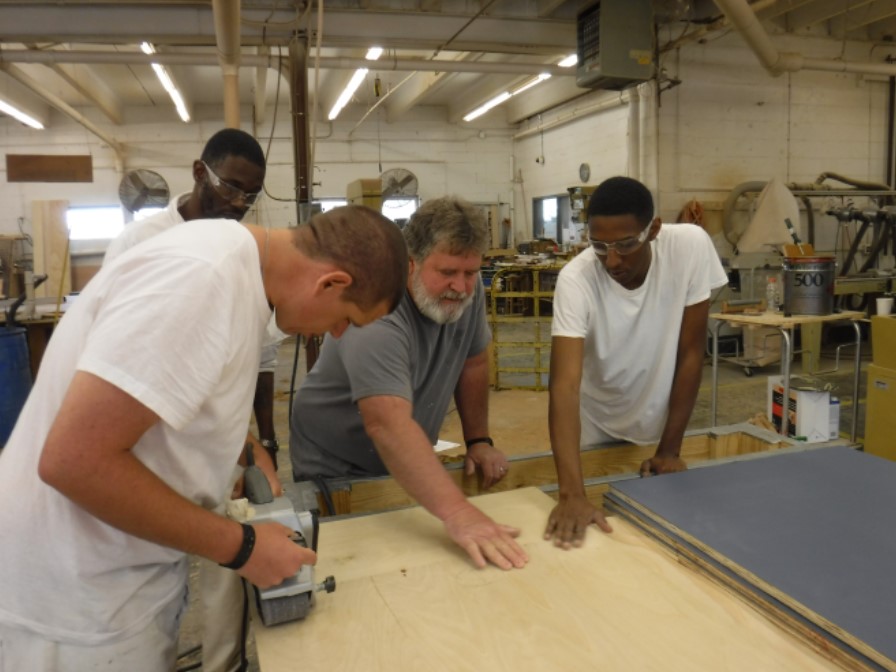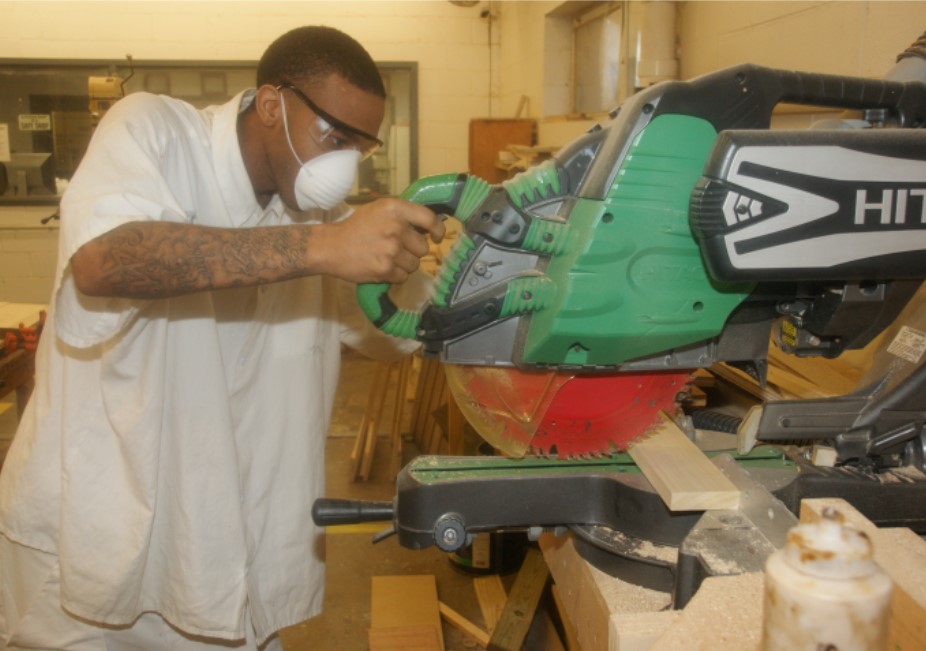Cabinetmaking
Cabinetmaking (CAB) is a 60 semester hour program combining classroom theory with hands-on practice in the laboratory. Requirements for the certificate of completion include four academic courses totaling 12 semester hours and all required career technical courses. Students can also earn stackable short term certificates and industry certifications. This program is designed to help students acquire the knowledge, skills and abilities needed to prepare for successful entry-level employment in the field of cabinetmaking.
Awards
- Certificate
-
- Cabinetmaking
- Short Term Certificate
-
- Basic Cabinetmaking
- Millwork and Finishing
- Shop Management
- Wood Turning
Industry Certification
National Career Readiness Credential
NCCER CORE
OSHA 10-hr General Industry Safety/Health
Estimated Program Length
| Award | Length | Credit Hours |
| Short Term Certificate | 1 semester | 12 |
| Certificate of Completion | 4 semesters | 60 |
Required Program Courses
| Course | Title | Credit Hours |
| CAB101 | Introduction to Cabinetmaking | 3 |
| CAB102 | Intro to Lumber and Wood Products | 3 |
| CAB103 | Sizes, Dimensions and Joints | 3 |
| CAB104 | Cabinet Shop Operations | 3 |
| CAB110 | Equipment Maintenance | 3 |
| CAB140 | Wood Finishing Fundamentals | 3 |
| CAB141 | Wood Finishing | 3 |
| CAB204 | Cabinetmaking and Millwork | 3 |
| CAB205 | Furniture Construction | 3 |
| CAB206 | Special Projects in Furniture Const. | 3 |
| CAB211 | Cabinet Installation and Trim Work | 3 |
| CAB225 | Kitchen and Bath Design | 6 |
| CAB230 | Estimating Costs in Cabinetmaking | 3 |
| CAB260 | Woodturning I | 3 |
| CAB261 | Wood Turning II | 3 |
Required Academic Courses
| Course | Title | Credit Hours |
| DPT100 | Introductory Computer Skills I | 3 |
| ENG100 | Vocational Technical English | 3 |
| MAH101 | Introductory Mathematics I | 3 |
| SPC103 | Oral Communication Skills | 3 |
Elective Courses
| Course | Title | Credit Hours |
| CAB181 | Special Topics | 3 |
| CAB182 | Special Topics | 3 |
Electives may be offered to meet a student’s personal educational goals or for instructional purposes.

Program Contact
Mr. Ray Albright, Instructor
Main Campus
334-514-1364
This is a “Live Work” program.
Occupational Data*
Cabinetmakers work in residential and commercial settings, where they use creative skills in design and analytical skills to interpret drawings and layouts. Tasks include cutting, assembling, finish-sanding, staining and sealing wood cabinets. According to the Bureau of Labor Statistics, cabinetmakers earned an average of $30,530 in 2016. Though companies are more likely to hire employees who are computer savvy, cabinet makers who are expert woodworkers will continue to have good job opportunities.
*Bureau of Labor Statistics, U.S. Department of Labor, Occupational Outlook Handbook




